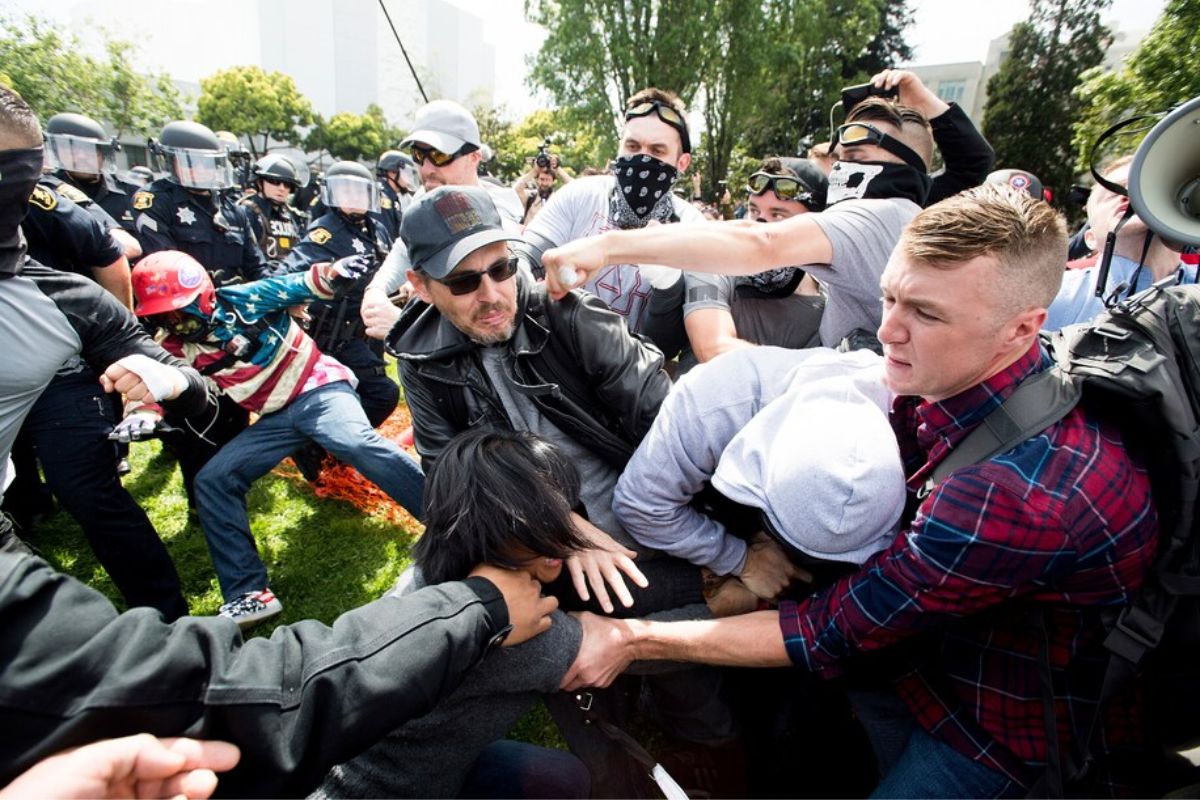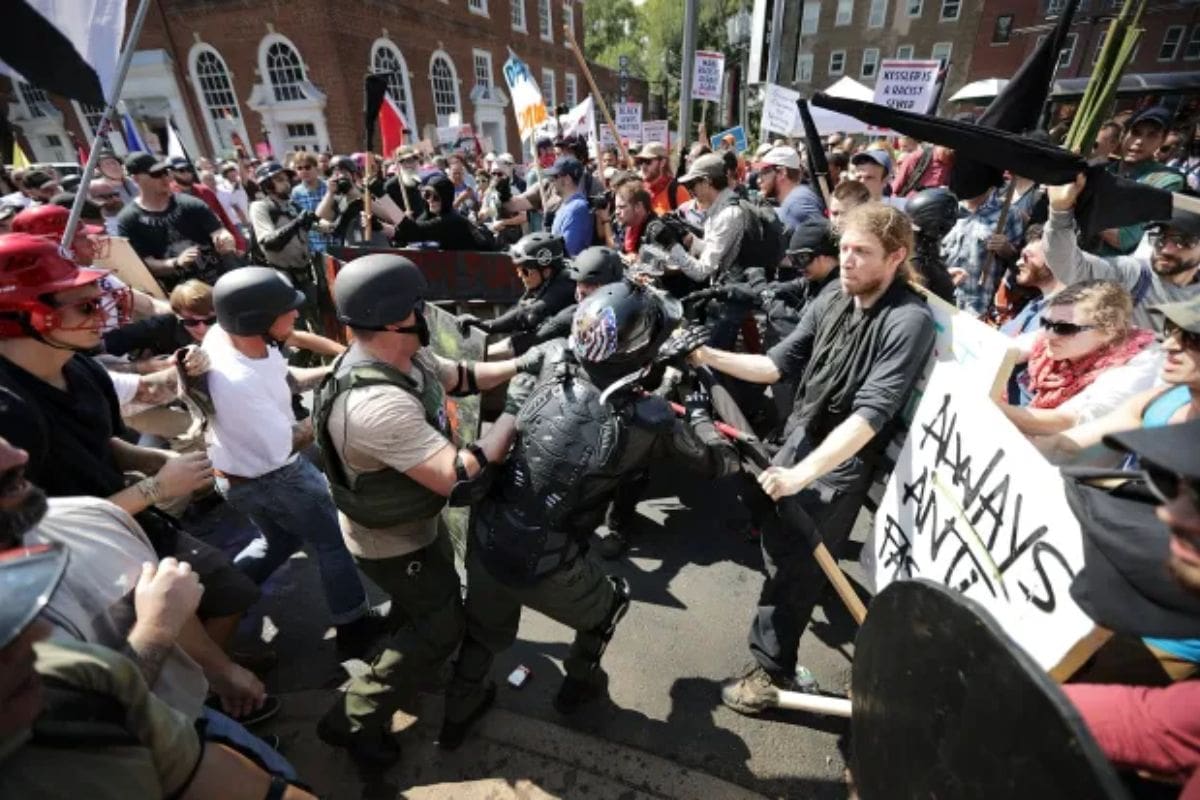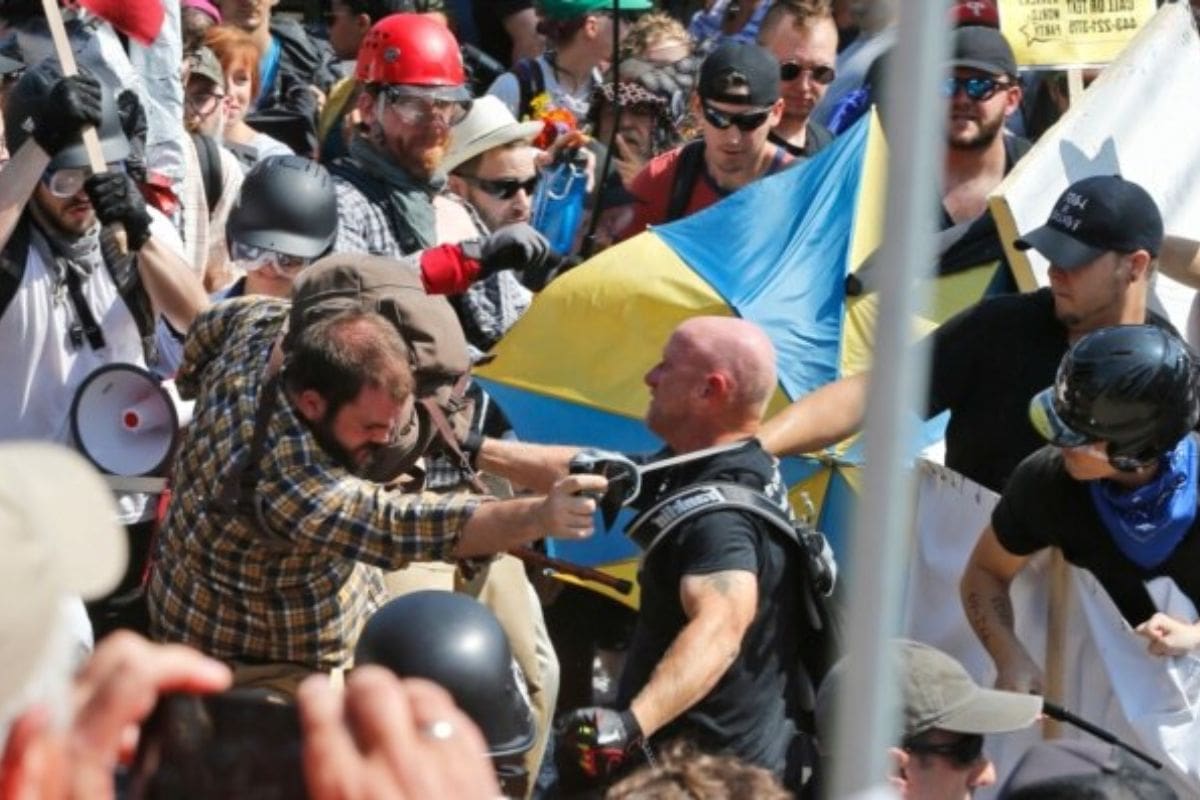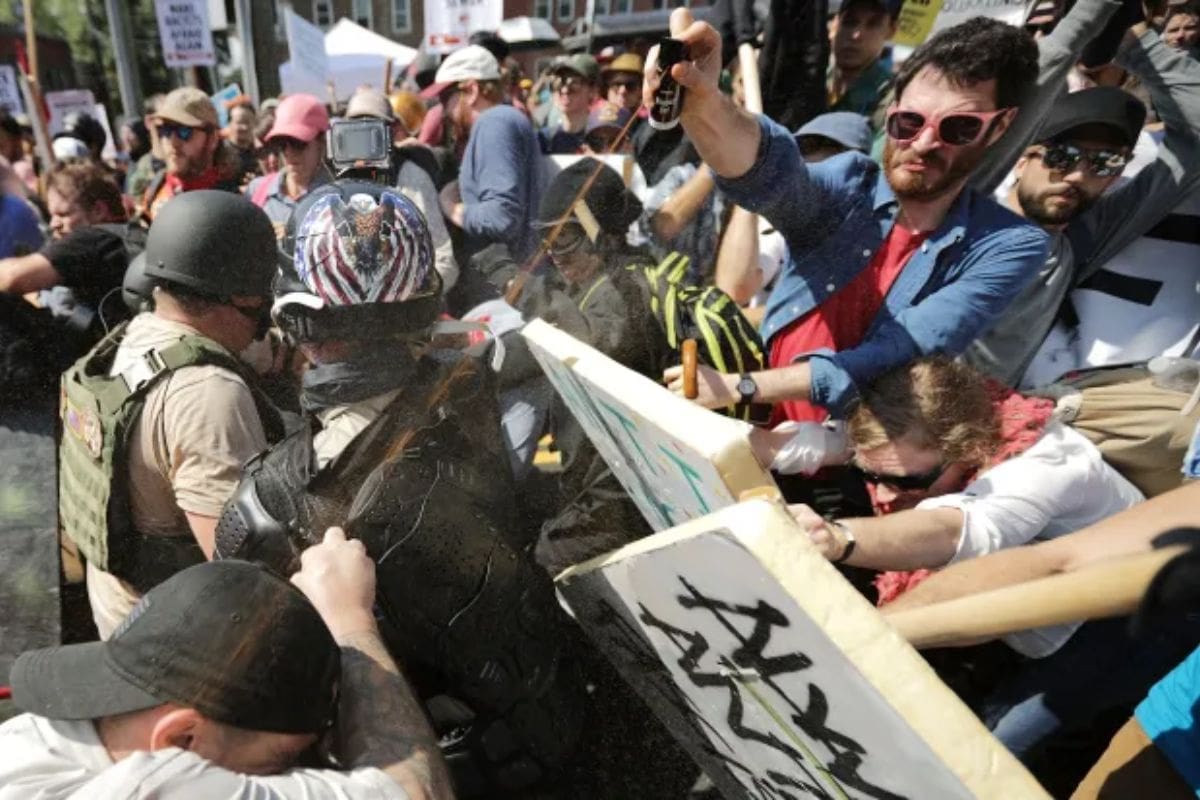California Judge Drops Charges Against: The recent decision by a California judge to drop charges against alleged white supremacists for the second time has reignited debates on selective prosecution and First Amendment rights.
The case involving the Rise Above Movement, known for their violent tactics, has stirred emotional responses and legal appeals.
With federal charges dismissed again, questions surrounding the judicial system’s approach to such cases and concerns about potential ramifications loom large.
Stay tuned as we delve deeper into the complexities of this contentious issue.
Selective Prosecution in White Supremacist Case: Federal Charges Dismissed Again
In a controversial decision that has reignited debates surrounding the boundaries of free speech and selective prosecution, federal charges against alleged members of the Rise Above Movement, a white supremacist group accused of inciting violence at California political rallies, have been dismissed for the second time in five years by U.S. District Judge Cormac J. Carney. This ruling has sent shockwaves through the legal community, with many questioning the implications for future cases involving hate groups. Judge Carney’s justification for the dismissal centered on concerns of selective prosecution and the protection of First Amendment rights, leaving many to ponder the delicate balance between ensuring justice and safeguarding freedoms of expression.
Critics argue that the decision sets a dangerous precedent, potentially emboldening extremist groups to further propagate their hateful ideologies under the guise of protected speech. The Rise Above Movement’s alleged involvement in violent activities has sparked outrage, with calls for stricter enforcement against such groups growing louder. As the debate rages on, the implications of this ruling on the fight against white supremacy remain uncertain.
Background and Allegations: Rise Above Movement’s Violent Tactics
The Rise Above Movement, known for its violent tactics, has faced allegations of conspiring to riot at political rallies in Huntington Beach, Berkeley, and San Bernardino in 2018. This group, characterized by its extreme views and aggressive behavior, has been at the center of controversy for its disruptive and dangerous actions.
- Coordinated through the internet to attend political rallies
- Violently confronted demonstrators at various events
- Engaged in criminal violence to further their agenda
- Celebrated their actions on online platforms
- Used online platforms to recruit new members
The Rise Above Movement’s tactics have raised serious concerns about public safety and the limits of free speech. The accusations against them highlight the challenges of addressing extremism in today’s society and the potential dangers posed by groups that resort to violence to promote their ideologies.
Judicial Decision: Selective Prosecution and First Amendment Concerns
Regrettably, the recent judicial decision regarding the alleged white supremacists’ charges being dropped once again has sparked intense debate surrounding selective prosecution and First Amendment concerns. Judge Carney ruling to dismiss charges against Robert Rundo and Robert Boman has ignited a firestorm of controversy.
While acknowledging the group’s involvement in criminal violence, the judge condemned the selective prosecution based on speech and beliefs, deeming it unacceptable. This decision raises questions about the consistent application of the law, especially concerning ‘far-left extremist groups’ who may not face similar scrutiny.
Judge Carney’s previous stance on the constitutionality of the Anti-Riot Act of 1968 further complicates matters, as he argued it could infringe on individuals’ rights to advocate violence without an imminent threat.
The intersection of free speech, criminal behavior, and ideological beliefs in this case has brought the delicate balance between upholding the law and protecting constitutional rights into sharp focus, leaving many to ponder the implications of such a decision.
Immediate Ramifications: Emotional Responses and Legal Appeals
Emotions surged and legal battles loom following the controversial dismissal of charges against alleged white supremacists, prompting a divisive response from both supporters and critics alike. The courtroom drama unfolded, leaving a trail of shock and outrage in its wake. Here’s a glimpse of the aftermath:
- Supporters Rally: Those in favor of the accused hail the decision as a victory for free speech, rallying behind the defendants as martyrs for their cause.
- Critics Condemn: On the flip side, critics lambaste the ruling, decrying it as a miscarriage of justice and a dangerous precedent for future cases.
- Public Outcry: The public is left in a state of turmoil, grappling with the implications of the dismissal on the fight against hate crimes and extremism.
- Legal Frenzy: With prosecutors swiftly filing an appeal, the legal battle is far from over, setting the stage for a protracted and contentious court showdown.
- Community Tensions: The dismissal further inflames tensions within the community, exacerbating existing divides and stoking fears of escalating violence.
Also Read: California Job Hopes in Carbon Management A Potential Disappointment
News In Brief
In a second dismissal, a California judge has reignited debates over free speech and selective prosecution by dropping federal charges against Rise Above Movement members. The group, known for violent tactics at political rallies, faced accusations of online coordination, attacks on demonstrators, and recruitment through violent videos. The decision, based on First Amendment concerns, sparks concerns about its impact on combating extremism. Emotional responses and legal appeals follow, with supporters lauding a free speech victory and critics condemning a potential miscarriage of justice. Public outcry intensifies, setting the stage for a prolonged legal battle.




